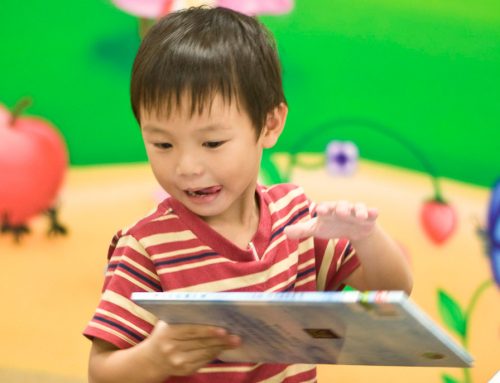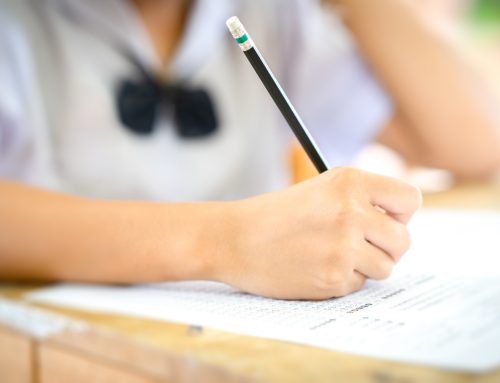Your child learns all the time. For the most part, learning is a discovery process to figure out what works, how it should be and how to make it happen. In essence, establishing learning habits benefits you for a lifetime and translates into great learning efficiency, less pressure, and easier goals achievements.
Practising repetition during youth is extraordinarily fruitful. Patterns learnt at this stage of growth tend to stick and becomes the foundation of him/her learning trajectories – so you’ll want them to build good ones.
Here are some habits your child can (and should) master early on to set themselves up for a lifetime of success.
Good Chinese Learning Habits For Students
1. Read ahead
It may be tough to read something you have minimal knowledge of. However, there are some really good reasons to read before class. When you read ahead of time, you are more likely to understand the organisation of the lecture. You’ll be better able to figure out what’s important and what isn’t (and thereby take effective notes). Parents, with much matured logical thinking skills, can lead children through this process to help them out.
2. Take notes
It’s a fact: jotting notes helps etch what’s learnt. While taking notes, your kid will understand and memorize bits and parts of the problem better.
Also, we suggest checking through your kid’s notes and textbooks. Take a closer look at the content and the note-taking format — they’re clues to your kid’s thinking system and organizational skills. Help restructure your child’s thoughts if they appear to be all over the place. Write things down, sketch out a brainstorm map or doodle to help trim some of the thinking paths and to strengthen the overall learning memories better.
3. Review
Always go through work, over and over again, once it’s done. Even for adults, memory gets inevitably foggy after a few days (remember that doddle you were supposed to do?). The same thing goes for kids; kids forget what they learnt if they don’t revise it. For languages and language-based subjects like Chinese and chemistry loads of knowledge are required, so the repeated analysis is surely necessary.
4. Independent thinking
Both a process and a result, independent thinking elevates thinking ability, exercises willpower, and lifts children’s self-confidence. We should always keep in mind to grant kids space and freedom in their analysis. Being too heavily involved in their thinking process, in other words, interfering with their problem-solving creativity may wound them up in ideas or solutions that are less imaginative. It’s entirely fine to voice opinions, but it’s best to do it in moderation.
5. Consolidate errors
A Chinese saying goes: “Failure is the mother of success.” Inevitably, students make silly (or not) mistakes in class. Want to tackle mistakes? Always know your mistakes. Jot it down and do it over and over again. Otherwise, the error is just going to repeat itself over and over. When an error is not corrected to the point that the mind is used to it, you can’t attain a conditioned reflex. And for that to happen, the idea needs to be constantly reviewed before the correct method can be laid out in front of the same question again.
6. Write thoughtfully
As precious as excellent writing can get, great handwriting can also be a bonus point. As the Chinese saying goes, writing is a way to reflect a person’s personality traits. Prim and proper handwriting speaks of wisdom, stability, and excellence. Even if your kid may not be a literary genius, it doesn’t hurt to have awesome handwriting.
7. Read for leisure
However challenging it is for a kid to pick up a book and finish it, broad and in-depth reading will make children more confident, mature and optimistic. Reading for pleasure entails great benefits such as enriching knowledge and enhances divergent thinking. A student‘s time is precious, and reading should be selective. Your kid probably faces textbooks all the time, so that gives them a good reason to revise them. And not only because they interact with the contents almost every day, but also because every sentence in the compilation is carefully considered.
8. Relax
Children are often full of beans. One second they’re on to their video games and digging dirt the next. There are many ways to exercise self-control, and relaxing is a relatively good way to hone willpower and develop the habit to plan. Relaxation can be done in any form, such as exercising. Encourage and recognize your child’s progress, and always be patient.
9. Set a timetable
Key to make a habit stick: repeat it at the same time. Everyday. Having a plan cements the effectiveness of time utilization by subdividing time and tasks. Your child develops a habit faster once they’re used to doing it a certain way. Set a notebook especially for setting daily timetables and plans. Why a daily schedule? Because every moment changes. Stick to it until they get used to daily tasks without having to write it down.
Why do students with good grades always learn well, while students with poor grades find it hard to improve? Really, it all comes down to the influence of habits. Cultivate, perform and stabilize good study and living habits as early as possible. In Singapore a student spend at least a decade in school; make good use of this time to train children to establish new good habits. During so, parents can always lead by example, which is way more effective than simple preaching.
Sign your child up for a free trial lesson with Connected Learning; classes from P1 to S5!







